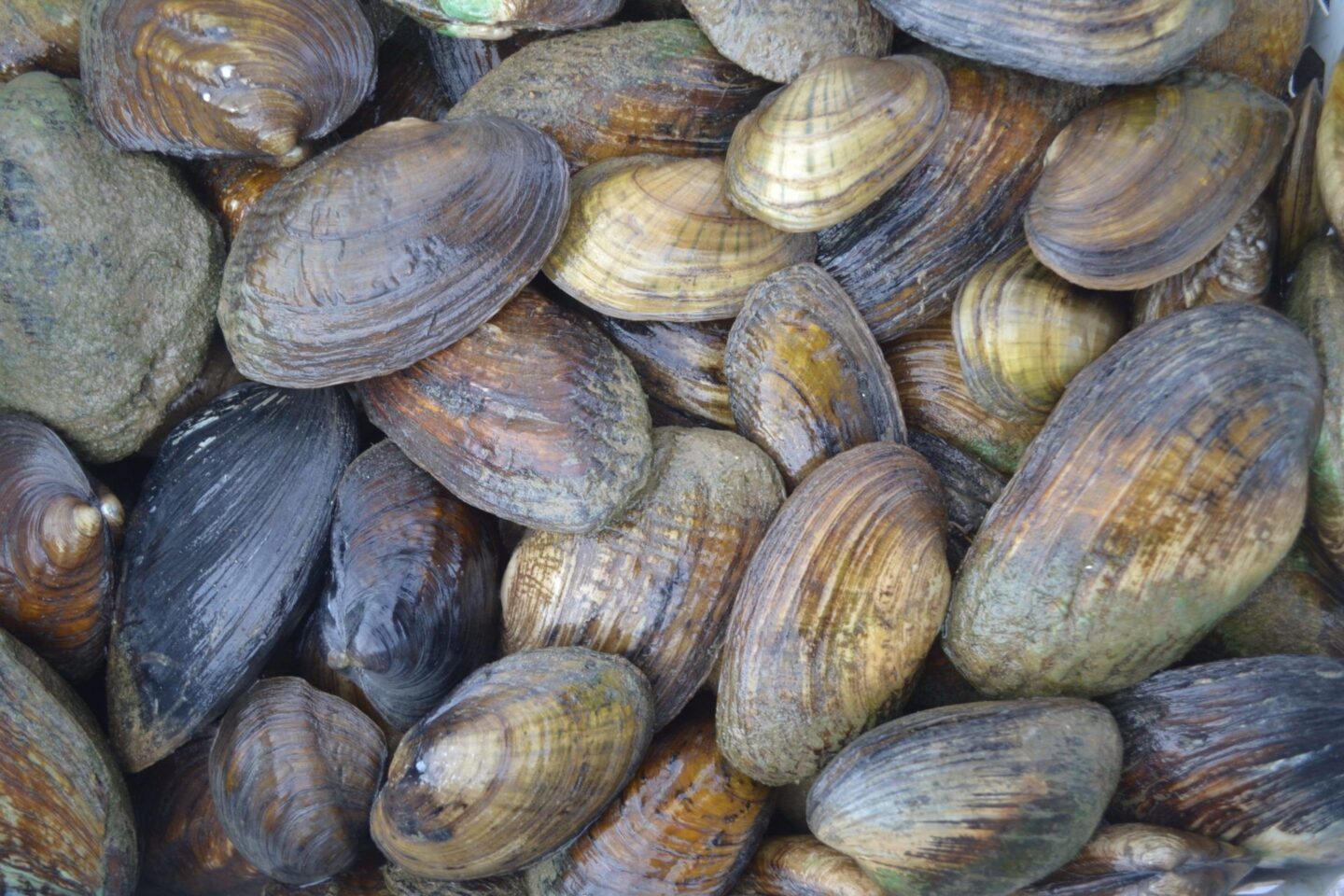Have you ever seen a purple wartyback? How about a pyramid pigtoe? Or a monkeyface? These colorful and sometimes comical names belong to some of the Ohio River watershed’s freshwater mussels.
Ohio River Foundation (ORF), a regional conservation organization, is pleased to announce the 15 schools that have been selected for its Mussels in the Classroom (MIC) program. This first in the nation program will involve more than 1,000 students in animal husbandry and scientific research to assist in the recovery of imperiled Ohio River watershed freshwater mussels.
Starting in fall 2017, through its partnerships with Kentucky Fish & Wildlife Service, Ohio State University, and Thomas More College, ORF is offering MIC as an extension of its award winning River Explorer education program. The River Explorer program educates thousands of students every year about river ecology and conservation stewardship.
Freshwater mussels are an often overlooked but important species of any watershed ecosystem. Many species are imperiled and several are extinct. However, these animals are our rivers’ natural filters, constantly straining the water and removing particles which they consume as food, leaving the water cleaner. They are long-lived (some to 100 years), slow growing, and move very little during their lives, serving as excellent bio-indicators of aquatic health. They are also food for other animals. Also, over the centuries, people have harvested mussels as food, tools and ornaments, and more recently, for the manufacture of pearl buttons and cultured pearls.
Nearly 80 species of native freshwater mussels historically inhabited the Ohio River watershed. Now fifteen of these are federally endangered and five are already extinct. Over the past 200 years, we have abused our aquatic ecosystems through pollution, dam construction, stream channelization, dredging, clearing of riparian vegetation, and discharge of mining and industrial wastes. Add to this the introduction of exotic and invasive species like the zebra mussel, and you have a recipe for extinction.
The pictured mussels were rescued by ORF staff and volunteers during the removal of a small dam on the Stillwater River (Ohio). They were in an area upstream of the dam that became exposed as the water level dropped when the dam was being removed. The mussels were relocated to other segments of the river further upstream and downstream of the affected area.
But in recent years a determined and concerted effort has been made by several experts and agencies to raise and repatriate thousands of these “silent messengers of water quality” to rivers, creeks, and streams in the Ohio River watershed. Schools participating in MIC will be supporting this “cutting edge” scientific regional effort.
MIC will enable students to care for and raise freshwater mussels provided by ORF and its partners. At the beginning of the experience, ORF will provide instruction and the students will take a field trip to a nearby freshwater mussel facility. The classroom activity will involve caring for live mussels in the classroom, including daily feeding, water changes, and temperature management. Students will monitor, feed, and share activity information with ORF and its partners and other participating schools.
The 15 schools selected for the first installment of the MIC program are in Greater Cincinnati, Columbus, and Lexington: Greater Cincinnati – Lakota East HS, Sycamore HS, Batavia HS, Ryle HS (KY), Parker Woods Montessori, Ethel Taylor Academy, School for Creative and Performing Arts; Columbus – Deer Run Elementary, Lincoln Elementary, Horizon Columbus HS; Lexington – Tates Creek HS, Winburn Middle School, Jessie Clark MS, Northern Elementary, Cardinal Valley Elementary.
Now in its 17th year, ORF through its River Explorer education programs and restoration activities reaches thousands of students each year and trains and develops the next generation of environmental stewards. Its work also assists communities along the river and throughout the 200,000 sq. mile watershed with protecting water quality, restoring habitat, and improving public awareness of the importance of the natural environment.
View the Archived Cincinnati Enquirer Local Share Article

